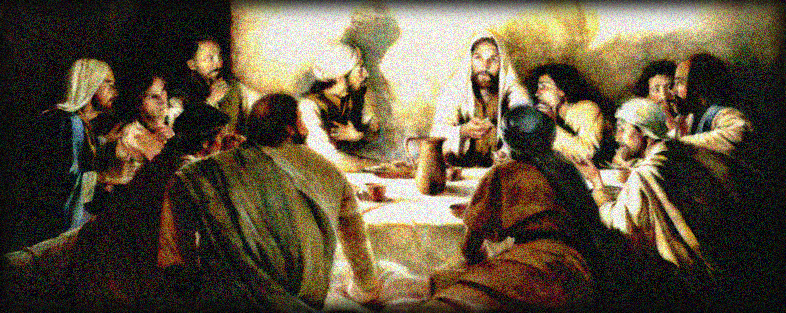It is always a joy for the believer to discern intimations of Christ in the Old Testament. These are by no means rare but often the Christian eye is not trained to detect them. We have his warrant to scan every page in search of references to him. “Everything must be fulfilled that is written about me in the Law of Moses, the Prophets, and the Psalms (Luke 24:44). That is wide-ranging territory over which to search for knowledge of the Lord Jesus and it encompasses every department or class of biblical literature conserved in the book of divine revelation to Israel. The narrative, the poetry, the wisdom, the prophetic oracles and instruction, all have something to say about Jesus, our need of him and his answers to our needs.
The Old Testament is abundantly rich with references to Jesus and the key themes of his Gospel.
“This is what is written: The Christ will suffer and rise from the dead on the third day, and repentance and forgiveness of sins will be preached in his name to all nations beginning at Jerusalem” (Luke 24: 46-47).
These assertions of the Lord maintain the perpetual currency of Israel’s ancient writings regarded as canonical. In the sense that they point with accuracy to him and his completed work they are up-to-date descriptions of the mission of the Messiah published before his time on earth. The ultimate thrill of Bible study is to fit the expectations to the fulfilment that Christ would achieve - to connect the pieces as it were. Put them together and you view the visage of the Lord Jesus. It is exquisite delight.
The apostle Paul endorses the ongoing, indisputable validity of the heritage we gain from Israel’s ancient authors. He brings all his Jewish learning and expertise to bear upon the commendation of constant attention to the former writings of his nation: “For everything that was written in the past was written to teach us, so that through endurance and the encouragement of the Scriptures we might have hope” (Romans 15:4). The Old Testament announces Jesus with more clarity and detail than many believers suspect, and it flows into the New, its confirmatory evidence, as the basis of the apostolic testimony. The two Testaments merge in witness to Christ and they should never be wrenched apart by our commencement of the reading of the Word of God at the Gospel of St. Matthew. This evangelist plundered the truths of former divine disclosure as the Lord Jesus himself indicated that he would: “Therefore every teacher of the law who has been instructed about the kingdom of heaven is like the owner of a house who brings out of his storeroom new treasures as well as old” (Matthew 13:52). We have one Bible with two sections of equal value. Christ combines the treasures of each in his wondrous self.
And so Paul warns the Corinthians of the lingering evil tendencies within believers and the latent lusts that can be aroused through spiritual carelessness by taking converts, Jewish and Gentile, back to the episode of Israel’s wanderings through the wilderness, prolonged by their constant departures from the holiness the Lord conferred upon them (external consecration) and wrought within the elect among them (interior conversion). “For not all who are descended from Israel are Israel” (Romans 9:6). This last insight explains the falling away of nominal professors.
Jesus Christ was the contemporary of the people of Moses and both leader and led offended him in rash and rebellious behaviour. The Redeemer is presented metaphorically as the Rock that satiated the thirst of the escapees from Egypt and followed them on their disciplinary journey to Canaan. “They were all baptized into Moses in the cloud and in the sea. They all ate the same spiritual food and drank the same spiritual drink; for they drank from the spiritual rock that accompanied them, and that rock was Christ (vv2-4 cf Numbers 20:1-13). Through the word of Moses and the spiritual presence of the pre-incarnate Christ the Lord Jesus was the guide of the Old Testament version of the people of God (a fact also exhibited in the cloudy and fiery pillar). Early manuscripts of Jude state that it was Jesus “who delivered his people out of Egypt (v5). And Moses was the tutor who was leading his folk to an apprehension of Christ (Galatians 3:24). The psalter develops the motif of the divine Refresher whose saving grace gushes out upon the spiritually dehydrated meandering through the desert. “He opened the rock, and water gushed out; like a river it flowed in the desert” (Psalm 105:41).
The grand and stupendous truth of the pre-existence of our Saviour is established in the Mosaic record, the rejoicings of the psalmist, and a preferred reading of Jude (F.F. Bruce) in his knowledgeable witness to his brother. These are glimmerings of the greatness of the One who reinstates us to the favour of the Father, who mediates between us and our Maker.
The notion of miraculously provided water culminates in the claim of Christ, “If anyone is thirsty, let him come to me and drink. Whoever believes in me, as the Scripture has said (e.g. see above and other places), streams of living water will flow from within him” (John 7:37b-38). This is the fulness and flow of the Spirit who proceeds from the Son as the pre-eminent spiritual donation. Christ is the rock from whom gushes the Spirit of regeneration, effective proclamation of the Saviour, and eternal life. The Old Testament is the indispensable trigger to all these marvellous things contained in Christ and poured upon chosen mankind, summed up as saving knowledge of the dear Son of God.
Paul deftly moves from the accompanying rock of old to the cup of the Lord in the new administration of the continuing covenant considered as the will and testament of the incarnate One who died for his people. We of this aeon drink from the same Christ as our forbears in Israel en route to the Promised Land. Their gaze upon him was distant and dim, through the screen of desert dust storms as it were. Our view of him is plain and clear through the reports of eye-witnesses. The rosy red cup of the Lord, drunk by faith, is a sensible means of confirming our derivation of forgiveness and everlasting life from the atoning blood-shedding of Jesus Christ. Our physical partaking of the memorial wine signifies our spiritual drinking - the slow imbibing and savouring of the fact of the Redeemer’s death, its meaning and benefits for us.
The Lord’s Table is an awesomely holy place and the occasion of his Supper is to be observed with deep reverence and righteously obedient disposition free of known offence and in peace, joy, trustfulness, and gratitude of heart for the intervention and intercession of Jesus on our behalf. We are cautioned by Paul not to be casual in approach or condoning of any evil within, or conflict with others we may reasonably correct. The judgment on errant Israel makes us wary. Our due judgment meted out to Christ our Substitute qualifies us to come and encourages us to be willing.
Lovely John “Rabbi” Duncan, administering the cup during a great service in Edinburgh, noticed a lady courteously declining to take the wine. Sensing her doubt and consciousness of unworthiness he returned with the chalice, proffering it to her with the consoling words, “Take it. Its for sinners’. The water of life; the blood of Calvary - our spiritual drink all the way home.
RJS



 RSS Feed
RSS Feed
